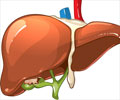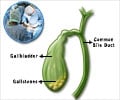In a study among patients who underwent gall bladder removal for acute calculous cholecystitis, lack of postoperative antibiotic treatment did not result in a greater incidence of infections.

Jean Marc Regimbeau, M.D., Ph.D., of the Amiens University Medical Center, Amiens, France, and colleagues randomly assigned 414 patients with mild or moderate acute calculous cholecystitis to continue with a preoperative antibiotic regimen (amoxicillin plus clavulanic acid) or receive no antibiotics after cholecystectomy. The study was conducted at 17 medical centers between May 2010 and August 2012.
The researchers found that the postoperative infection rates were 17 percent in the nontreatment group and 15 percent in the antibiotic group. In a per protocol analysis involving 338 patients, the corresponding rates were both 13 percent. Based on a noninferiority (not worse than) margin of 11 percent established for this trial, the lack of postoperative antibiotic treatment was not associated with worse outcomes than antibiotic treatment. The two groups of patients had similar length of hospital stay and readmission rates.
The authors note that guidelines published by the Infectious Diseases Society of America and the World Society of Emergency Surgery recommend treatment with amoxicillin plus clavulanic acid or sulbactam after cholecystectomy for noncomplicated acute calculous cholecystitis. "In the present series, we did not observe a benefit of postoperative antibiotic treatment on infections for patients with [mild or moderate] acute calculous cholecystitis."
"It is well known that continuation of antibiotic treatment increases costs and promotes the selection of multiresistant bacteria. In 2010, 37,499 cholecystectomies for acute calculous cholecystitis were performed in France, and 90 percent of these were for grades I and II [mild or moderate] acute calculous cholecystitis. Supposing that these patients did not really need postoperative antibiotics (which are generally prescribed for 5 days), we estimate that many days of antibiotic treatment could be avoided each year. Reduction of the use of unnecessary antibiotics is important given that there is an increasing antibiotic resistance and a higher incidence of antibiotic complications such as Clostridium difficile infection. Our study demonstrates that postoperative antibiotics following acute calculous cholecystitis are not necessary."
Source-Eurekalert
 MEDINDIA
MEDINDIA




 Email
Email










